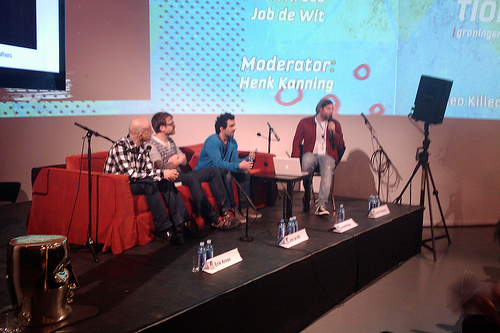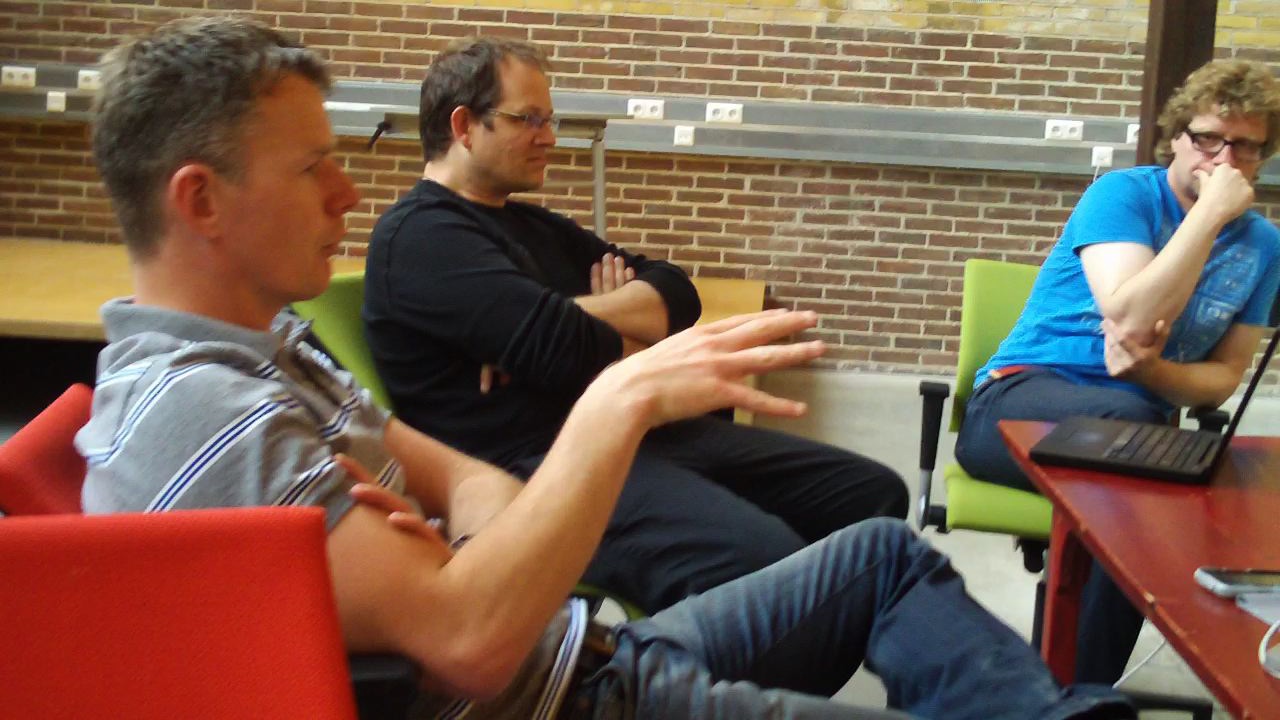Instead of a steady bombardment of news clippings through my Amplify-stream, I thought I’d try a different approach this week (a bit more on that next week, probably). These are five interesting pieces of news/information that I selected for you:
Unplugging from Location Based Services because of privacy concerns
Ray Wang writes a thoughtful piece on his use of Location Based Services (LBS) and the privacy risks involved that led him to stop using any of these services:
- Lack of control of my personal information.
- Minimal awareness on who’s using my information.
- Non-existent adoption of industry privacy standards.
“LBS is in it’s infancy. We still have time to make sure our fundamental locational privacy rights are in place. Apps providers, carriers, and other location based service and solution providers should quickly agree on end user privacy standards. Yes, one may argue that you are providing a free service, but is it really free when you are selling our information?”
As I am in the middle of developing a LBS-project, this is something that I take to heart and will attempt to do right.
Read the full article here: http://blog.softwareinsider.org/2011/01/17/mondays-musings-why-im-unplugging-from-location-based-services-until-the-privacy-issue-is-resolved/
Brilliant, Crazy, Cocky: Sarah Lacy’s New Book Is All That. But…
TechCrunch Editor Sarah Lacy’s new book Brilliant Crazy, Cocky: How The Top 1% of Entrepreneurs Profit From Global Chaos has been out for a couple of weeks now. Michael Arrington read it, re-read it and now urges everyone to read it and understand that:
“Sarah’s book opened my eyes. But not to the risk that Silicon Valley can be toppled. Rather, she opened my eyes to the untenable constraints that people around the world have to work with. And damnit, that needs to change.
Silicon Valley isn’t a place. It’s an idea. And whether you’re making toilet paper in Rwanda or building gaming companies in Asia, you’re part of it.”
Astute insight, for an American ;-). Anyways, the book is on my to-read list.
Keen On… The Domino Project: Seth Godin Reinvents the Book Business (TCTV)
Andrew Keen, primarily known for his grumpy outlook on amateur-produced content, has a TV-show on TechCrunch in which he manages to get some exciting guests. He also puts his somewhat cynical, distrusting view on all-things-new to good use by asking simple but challenging questions.
Sethz Godin does not need smart questions to sell his ideas and convictions, but he does come off open and honest in his interview with Andrew Keen. Seth sheds some more light on the Domino project, that just might make a big difference in the traditional world of book publishing.
Read the entire article here: http://techcrunch.com/2011/02/08/keen-on-the-domino-project-seth-godin-tctv/
Can You Really Outsource Social Media?
: (by @baekdal )
That’s a question that is on the minds of a lot of people and companies. The obvious answer from Thomas Baekdal is:”yes, and no”. and rightly so:
- You *cannot* outsource who you are, or what you do!
- You *cannot* outsource a social culture or wanting to connect with your customers!
- You *can* outsource all the steps involved in establishing a connection!
- You *can* outsource social monitoring and frequently asked questions!
Read his entire article here: http://bit.ly/eZUkpu
NOTE: We might be able to help you sort all this out. Leave me a message or come over to DeOndernemers.nl to get in touch.
5 Drivers for Future Business Models
The advertising world is changing, as is the way we as consumers engage with brands and think about value and spending money and time on things. Kia Davis (VISA Europe) put together a list of five insights that provide interesting ways to construct Business Models that take advantage of the changing behavior of consumers. I selected just two to highlight, since they appear counter-intuitive at first glance:
“1. Consumers will pay for content – A decade ago media companies thought that consumers would never pay for online content, but the rise of app sales, in-app sales, ebook downloads, and crowdfunding models have proven them wrong. Today, 38% of iPhone owners say they would pay for magazines which you can read on a PC or portable device, compared to 29% of the general population. Consumer-paying models allow startups greater flexibility in pricing and business models, because revenue can come from the mix of advertisers, product providers, and consumers. In difficult times and as the business progresses, pricing to different parties can adjust.
2. People spend more when it’s not ‘real money’ – If startups can separate the payment and the transaction, for instance through upfront fees in exchange for credits that can be used for other items, people will likely spend more. Similarly, if a subscription model has inclusive benefits, people are more likely to view these as ‘freebies’. This also can allow the startup to reward its users through credits/currencies that are likely to stay within the system. For game developers,Facebook credits generate higher total revenues per user compared to games that use traditional currencies.”
Think about that. Then reconsider the business model for the stuff you’re working on right now. Read the entire article here: http://www.boardofinnovation.com/2011/02/10/5-drivers-for-future-business-models/?utm_source=feedburner&utm_medium=feed&utm_campaign=Feed:+BoardOfInnovation+(Board+Of+Innovation)
Spend Wisely. Finally, an Investment Roadmap for Social
Jeremiah Owyang presents two interesting things for any company looking to invest more budget into Social Media.
First, there is a simple quiz to measure how mature the social aspects of your company’s business is
Secondly, you should adjust your buying/investments according to the maturity that came out of the quiz.
Obviously, you might think that this is a simplification of how the real world works. But in fact, it is even simpler. You cannot force social media and good social behavior on your company or co-workers. So keep your money in your pocket and focus on becoming socially minded first. Again, we might be able to help you out there, if you feel uncomfortable about that. Read his entire post here: http://www.web-strategist.com/blog/2011/02/10/spend-wisely-finally-an-investment-roadmap-for-social-business-buyers-altimeter-report/?utm_source=feedburner&utm_medium=feed&utm_campaign=Feed:+WebStrategyByJeremiah+(Web+Strategy+by+Jeremiah)
Tell me what you think?
How do you like this selection of six pieces of information that i tried to curate for you? Was it worth reading? Let me know in the comments!




